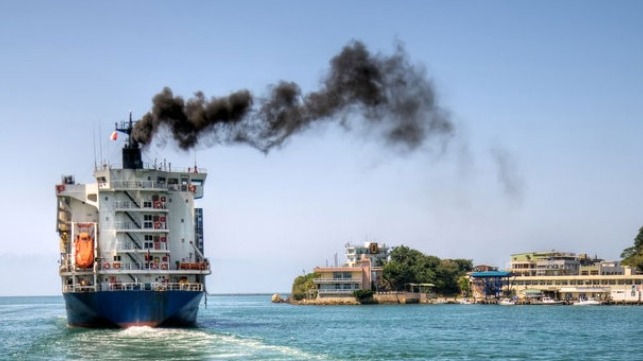ICS Renews Decarbonization Debate Supporting Carbon Tax on Shipping

Leaders within the shipping industry launched the latest salvo in what is expected to be a hotly contested debate this fall over shipping’s carbon emissions and the efforts to decarbonize. The International Chamber of Shipping (ICS) announced that it submitted a plan to the International Maritime Organization supporting the introduction of the first global tax on carbon emissions for an industry.
According to the ICS, which is supported by INTERCARGO in the new proposal submitted to the IMO, the goal is to accelerate the uptake and deployment of zero-carbon fuels. They noted that at the current rate of production, zero-carbon fuels are not commercially available at the scale needed for the global fleet. Under their new proposal, ships over 5,000 gross tons operating internationally would pay a mandatory but unspecified tax for each ton of CO2 emitted with the monies going into an IMO fund to help support the development of the bunkering infrastructure required for alternative fuels, including hydrogen and ammonia.
“What shipping needs is a truly global market-based measure like this that will reduce the price gap between zero-carbon fuels and conventional fuels,” said Guy Platten, secretary general of ICS. “The rapid development of such a mechanism is now a vital necessity if governments are to match actions with rhetoric and demonstrate continued leadership for the decarbonization of shipping.”
The ICS said that it believes a mandatory global levy is the preferable route. Their efforts are seen as a move to head off regional approaches, such as the European Commission’s proposed EU Emissions Trading System. The ICS is speaking out against a “piecemeal approach,” while also trying to get ahead of other proposals which are likely to be put forth ahead of the IMO’s Marine Environment Protection Committee (MEPC) meeting scheduled for late in 2021 and the broader COP 26 meeting also this fall that will bring together world leaders to discuss climate issues.
Earlier this year, the shipping industry, including the ICS and INTERCARGO, had collectively lobbied for a proposed $5 billion R&D fund to support the development of fuels and technologies for the decarbonization of the maritime industry. While that proposal remains under consideration others are pushing for stronger measures for shipping, which currently accounts for approximately two to three percent of global carbon emissions but is expected to grow in the near term.
In addition to the EU’s trading scheme, which many labeled as onerous and difficult to implement on a global scale, several other high-profile proposals would also place an increasing burden on the shipping industry. A collaboration among Pacific Island nations led by the Marshall Islands and the Solomons updated their proposal. They are calling for a mandatory $100per ton fee that increases in future years.
The information released by the ICS, while seeking to take a lead in the debate, did not provide specific details including the level of the carbon tax. The ICS did say that its proposal would build on the proposed framework of the R&D fund, but would be in addition to its earlier proposal of a mandatory $2 per ton of marine fuel. The earlier levy proposal was specifically to fund the R&D of fuels and technologies required for decarbonization.

that matters most
Get the latest maritime news delivered to your inbox daily.
“Adopting our proposal for a levy-based system will avoid the volatility that exists under emissions trading systems, such as the EU ETS – which in the case of shipping, seem to be more about generating revenue for governments from non-EU shipping, than helping shipping to decarbonize,” the said Platter in the ICS statement.
Experts predict that that additional proposals will be forthcoming this fall as the debate intensifies.
